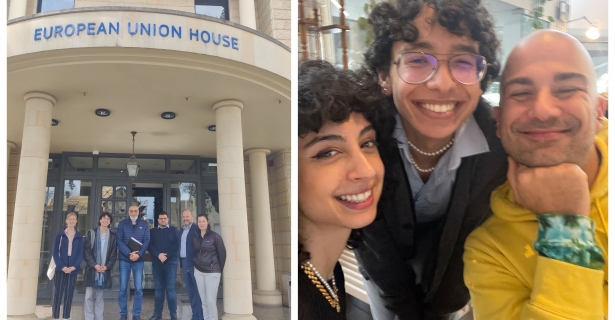My Wednesday was a true immersion into what I was hoping international work involved. The day started with Meg Grieve and Emma Jennings, as we walked to the EU House here in Nicosia. We were so well-welcomed into the premises of this organization. We had a very fruitful interview focused on the influence of EU policy on LGBTQIA+ rights in the Republic of Cyprus and the northern part of the island. I learned about the role of the European Court of Human Rights in decriminalizing same-sex relations through a court case presented by a Cypriot citizen in the 1990s against the Republic of Cyprus. Since then, the country has been advancing its policies regarding the LGBTQIA+ community by criminalizing hate speech, hate crimes, and discrimination in the workplace. As a country in the Middle East, it was very insightful to see the EU play the role of a catalyst for Human Rights. The Republic of Cyprus is very connected to its Greek Orthodox Church and having such progressive laws in a country that is so religious gives a precedent and a model for other countries where the marginalization of queer people is often excused through religion.
From this very formal meeting at the EU Commission's premises in Nicosia, I went to have a very enriching casual interview with two representatives from Generation for Change and Accept—two key NGOs that advocate for Human Rights and particularly LGBTQIA+ rights in the Republic. Talking to activists rather than politicians and legislators gave a different perspective on the work being done to better the queer experiences in Cyprus. I learned about bills being discussed currently on change of gender identity is one's civil status and overall about the tropes of family-based homophobia and even queer-phobia within the LGBTQIA+ community (i.e., biphobia, transphobia, etc.). Being queer Greek-Cypriots themselves, the two activists shared a lot of their own personal experiences and how public opinions have improved over time, thanks to influences from Greek, European, and other western media and through different projects done by civil society.
This trip has confirmed my interest in International Relations and showed me the importance of human connection in research and diplomacy.

